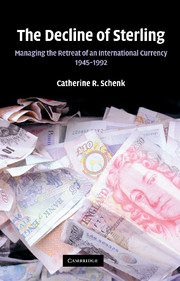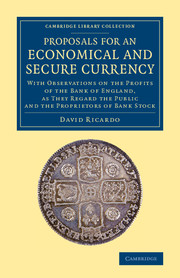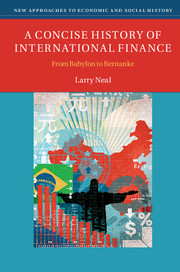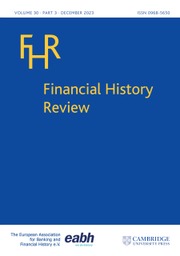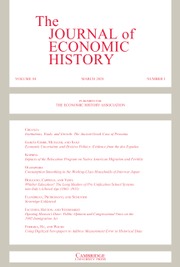The Decline of Sterling
Managing the Retreat of an International Currency, 1945–1992
£44.99
- Author: Catherine R. Schenk, University of Glasgow
- Date Published: July 2013
- availability: Available
- format: Paperback
- isbn: 9781107612990
£
44.99
Paperback
Other available formats:
Hardback, eBook
Looking for an inspection copy?
This title is not currently available on inspection
-
The demise of sterling as an international currency was widely predicted after 1945, but the process took thirty years to complete. Why was this demise so prolonged? Traditional explanations emphasize British efforts to prolong sterling's role because it increased the capacity to borrow, enhanced prestige, or supported London as a centre for international finance. This book challenges this view by arguing that sterling's international role was prolonged by the weakness of the international monetary system and by collective global interest in its continuation. Using the archives of Britain's partners in Europe, the USA and the Commonwealth, Catherine Schenk shows how the UK was able to convince other governments that sterling's international role was critical for the stability of the international economy and thereby attract considerable support to manage its retreat. This revised view has important implications for current debates over the future of the US dollar as an international currency.
Read more- Challenges prevailing views about the decline of sterling as an international currency by showing how the process was carefully managed
- Draws on archives of central banks and governments of a broad range of countries, IMF and BIS to give a broader perspective than books that rely on British sources alone
- Contains important lessons that apply to current debates over the future of the US$ as an international currency
Reviews & endorsements
'Catherine Schenk tells the story of the changing fortunes of sterling across the second half of the twentieth century. This ranges over everything from convertibility, reserve currencies, sterling balances, the euro-currency markets, the international financial architecture, and a great deal more. Sterling has also been placed in the context of the international monetary system, and in the context of the growing literature on the economic and wider history of the period. It is an excellent account of difficult territory.' Forrest Capie, Cass Business School and Official Historian of the Bank of England
See more reviews'Anyone concerned about how to resolve the global imbalances in the international economy today needs to read Catherine Schenk's detailed study of the political and economic difficulties that bedevilled Britain's decades-long effort to eliminate the 'sterling problem' left over from World War II. Her detailed analysis of the issues that confronted British policymakers and how they were resolved shows how hard it is to correct global imbalances once they exist, even with the best of intentions and international cooperation. For, even if the stakes diminish over time, as they did with British sterling, the stake holders and their interests keep changing as well.' Larry Neal, University of Illinois, Urbana-Champaign
Customer reviews
Not yet reviewed
Be the first to review
Review was not posted due to profanity
×Product details
- Date Published: July 2013
- format: Paperback
- isbn: 9781107612990
- length: 464 pages
- dimensions: 229 x 152 x 23 mm
- weight: 0.61kg
- availability: Available
Table of Contents
List of figures
List of tables
Acknowledgements
1. Introduction and outline of the book
Part I. Reconstructing the International Monetary System 1945–59:
2. The post-war international monetary system 1945–50
3. Return to convertibility 1950–9
Part II. Accelerating the Retreat: Sterling in the 1960s:
4. Sterling and European integration
5. The sterling devaluation 1967: relations with the USA and the IMF
6. Sterling and the City
7. Multilateral negotiations: sterling and the reform of the international monetary system
8. The sterling agreements of 1968
Part III. Sterling's Final Retreat 1970–92:
9. Sterling and the end of Bretton Woods
10. Years of crisis 1973–9
11. The aftermath 1980–92
12. Summary and conclusions
Index.
Sorry, this resource is locked
Please register or sign in to request access. If you are having problems accessing these resources please email [email protected]
Register Sign in» Proceed
You are now leaving the Cambridge University Press website. Your eBook purchase and download will be completed by our partner www.ebooks.com. Please see the permission section of the www.ebooks.com catalogue page for details of the print & copy limits on our eBooks.
Continue ×Are you sure you want to delete your account?
This cannot be undone.
Thank you for your feedback which will help us improve our service.
If you requested a response, we will make sure to get back to you shortly.
×
